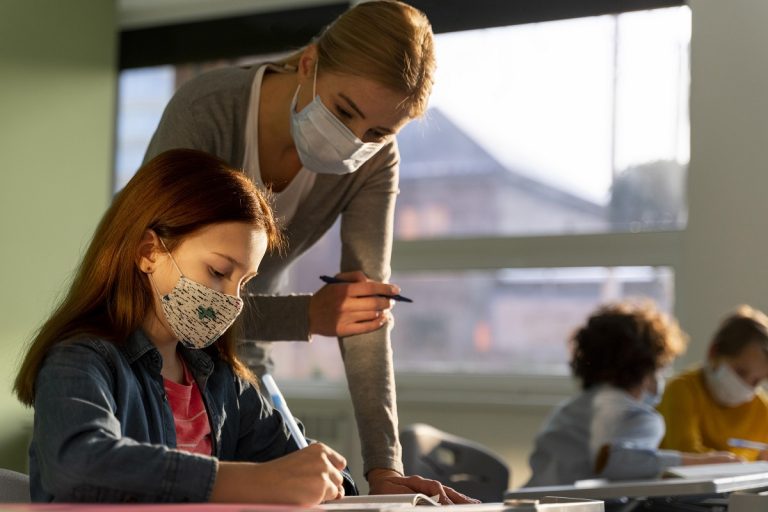Students in the Czech Republic may return to full-time teaching in March, on condition of comprehensive and regular testing of pupils and staff. Students will return in phases depending on capacity for testing and the epidemiological situation, with those expected to take exams soon as a priority. Photo Credit: Freepik / Illustartive photo.
Czech Rep., Feb 16 (BD) – On Monday, the government discussed the possibility of reopening schools on March 1st, which was one of the conditions set by the Association of the Regions (AKČR) when requesting a new state of emergency. According to Deputy Prime Minister Jan Hamáček (ČSSD), the government is ready to reopen schools using blanket antigen testing. Final year students of high schools and ninth graders will have priority to return due to the upcoming exam period.
The plan envisages that ‘maturita’ students in the final year of gymnasiums and higher technical schools will return on March 1st, followed by remaining high school students on the 8th, and ninth graders and primary school pupils from the 15th. There is no timetable yet for the rest of primary school students. “Depending on the capacity of these tests, we will work with the Ministry of Health to plan further waves of school returns,” said Robert Plaga, Minister of Education, Youth and Sports.
The strategy was devised by the Ministry of Education and then developed further by the Central Crisis Staff to be ready for implementation. The Ministry of the Interior is responsible for ensuring the purchase and distribution of suitable, non-invasive antigen tests that are accurate and EU certified.
‘‘If we manage to provide a sufficient number of tests by March 1st, there would be nothing to stop the process, after which everyone they call, that is, pupils and students, can start returning to school,’’ said Jan Hamáček, Head of the Central Crisis Staff, at a press conference. Manufacturers announced that it may take about a month to deliver a large number of antigen tests.
Coronavirus testing trials are underway in a number of Czech schools. “In the end, we decided that we would, as in Austria, use tests from the front of the nose,’’ said Minister of Health, Jan Blatný. However, Former Minister of Health Roman Prymula, now an adviser to Prime Minister Andrej Babiš (ANO), said: “I’m not sure if the tests used in Austria are sensitive enough. Their detection rate was relatively low.”
According to Plaga, antigen testing is not enough to combat the virus, so the State Material Reserves Administration will distribute three million FFP2 respirators to schools from the state reserves.







